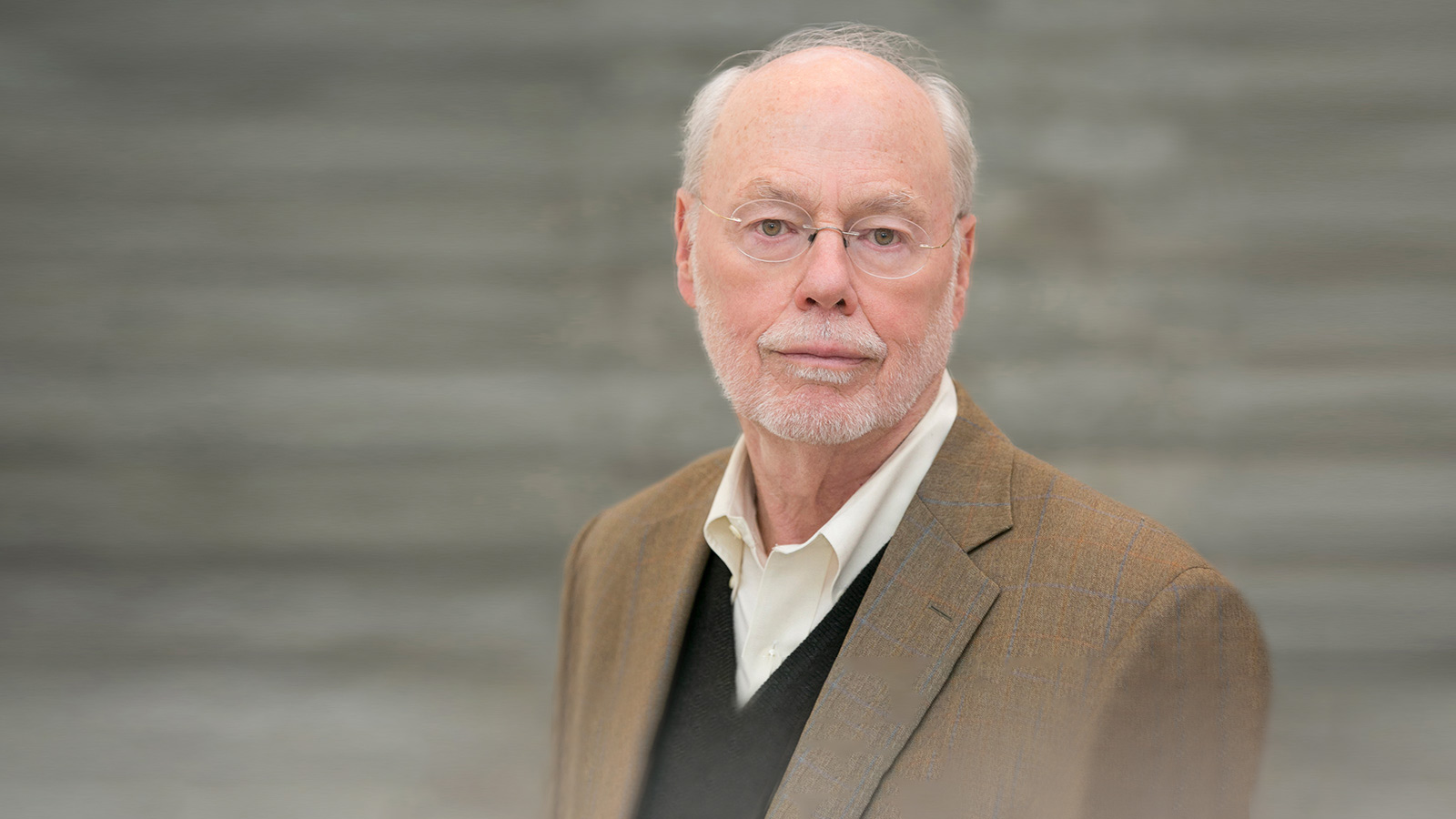Education
- PhD, 1969, University of Illinois, Urbana-Champaign
- BA, 1966, Chemistry and Math, Union College
Research Summary
We investigate small, non-coding RNAs called microRNAs (miRNAs), which regulate over half of the genes in mammalian cells at the stages of translation and mRNA stability. We are also interested in the processes underlying transcription from the anti-sense strand (so-called “divergent” transcription), as well as the relationship between elongation of transcription, RNA splicing, and chromatin modifications.Awards
- AACR Award for Lifetime Achievement in Cancer Research, 2020
- AACR Distinguished Award for Extraordinary Scientific Innovation and Exceptional Leadership in Cancer Research and Biomedical Science, 2018
- Royal Society of London, Foreign Fellow, 2011
- National Science Foundation, National Medal of Science, 2004
- The Nobel Foundation, Nobel Prize in Physiology or Medicine, 1993
- National Academy of Medicine, Member, 1991
- American Association for the Advancement of Science, Fellow, 1987
- American Academy of Arts and Sciences, Fellow, 1987
- National Academy of Sciences, Member, 1983
Key Publications
- Coactivator condensation at super-enhancers links phase separation and gene control. Sabari, BR, Dall'Agnese, A, Boija, A, Klein, IA, Coffey, EL, Shrinivas, K, Abraham, BJ, Hannett, NM, Zamudio, AV, Manteiga, JC et al.. 2018. Science 361, .
doi: 10.1126/science.aar3958PMID:29930091 - A Phase Separation Model for Transcriptional Control. Hnisz, D, Shrinivas, K, Young, RA, Chakraborty, AK, Sharp, PA. 2017. Cell 169, 13-23.
doi: 10.1016/j.cell.2017.02.007PMID:28340338 - Targeted mRNA degradation by double-stranded RNA in vitro. Tuschl, T, Zamore, PD, Lehmann, R, Bartel, DP, Sharp, PA. 1999. Genes Dev 13, 3191-7.
doi: 10.1101/gad.13.24.3191PMID:10617568 - Splicing of adenovirus RNA in a cell-free transcription system. Padgett, RA, Hardy, SF, Sharp, PA. 1983. Proc Natl Acad Sci U S A 80, 5230-4.
doi: 10.1073/pnas.80.17.5230PMID:6577417 - Spliced segments at the 5' terminus of adenovirus 2 late mRNA. Berget, SM, Moore, C, Sharp, PA. 1977. Proc Natl Acad Sci U S A 74, 3171-5.
doi: 10.1073/pnas.74.8.3171PMID:269380
Recent Publications
- Mutant p53 Exploits Enhancers to Elevate Immunosuppressive Chemokine Expression and Impair Immune Checkpoint Inhibitors in Pancreatic Cancer. Mahat, DB, Kumra, H, Castro, SA, Metcalf, E, Nguyen, K, Morisue, R, Ho, WW, Chen, I, Sullivan, B, Yim, LK et al.. 2024. bioRxiv , .
doi: 10.1101/2024.08.28.609802PMID:39257788 - The future of open research policy should be evidence based. Sharp, PA, Bonvillian, WB, Brand, A, Goldston, D, Stebbins, M. 2024. Proc Natl Acad Sci U S A 121, e2412688121.
doi: 10.1073/pnas.2412688121PMID:39078680 - Single-cell nascent RNA sequencing unveils coordinated global transcription. Mahat, DB, Tippens, ND, Martin-Rufino, JD, Waterton, SK, Fu, J, Blatt, SE, Sharp, PA. 2024. Nature 631, 216-223.
doi: 10.1038/s41586-024-07517-7PMID:38839954 - Improved modeling of RNA-binding protein motifs in an interpretable neural model of RNA splicing. Gupta, K, Yang, C, McCue, K, Bastani, O, Sharp, PA, Burge, CB, Solar-Lezama, A. 2024. Genome Biol 25, 23.
doi: 10.1186/s13059-023-03162-xPMID:38229106 - Single-cell nascent RNA sequencing using click-chemistry unveils coordinated transcription. Mahat, DB, Tippens, ND, Martin-Rufino, JD, Waterton, SK, Fu, J, Blatt, SE, Sharp, PA. 2023. bioRxiv , .
doi: 10.1101/2023.09.15.558015PMID:37745427 - Oncogenic CDK13 mutations impede nuclear RNA surveillance. Insco, ML, Abraham, BJ, Dubbury, SJ, Kaltheuner, IH, Dust, S, Wu, C, Chen, KY, Liu, D, Bellaousov, S, Cox, AM et al.. 2023. Science 380, eabn7625.
doi: 10.1126/science.abn7625PMID:37079685 - Altered DNA repair pathway engagement by engineered CRISPR-Cas9 nucleases. Chauhan, VP, Sharp, PA, Langer, R. 2023. Proc Natl Acad Sci U S A 120, e2300605120.
doi: 10.1073/pnas.2300605120PMID:36881621 - Transcription factor antagonism regulates heterogeneity in embryonic stem cell states. Hu, S, Metcalf, E, Mahat, DB, Chan, L, Sohal, N, Chakraborty, M, Hamilton, M, Singh, A, Singh, A, Lees, JA et al.. 2022. Mol Cell 82, 4410-4427.e12.
doi: 10.1016/j.molcel.2022.10.022PMID:36356583 - RNA in formation and regulation of transcriptional condensates. Sharp, PA, Chakraborty, AK, Henninger, JE, Young, RA. 2022. RNA 28, 52-57.
doi: 10.1261/rna.078997.121PMID:34772787 - RNA-Mediated Feedback Control of Transcriptional Condensates. Henninger, JE, Oksuz, O, Shrinivas, K, Sagi, I, LeRoy, G, Zheng, MM, Andrews, JO, Zamudio, AV, Lazaris, C, Hannett, NM et al.. 2021. Cell 184, 207-225.e24.
doi: 10.1016/j.cell.2020.11.030PMID:33333019
Multimedia
<

